Are you looking to buy a coil packing line from India? You know there are potential cost savings, but you're worried. You've heard the stories: equipment that doesn't perform, suppliers who disappear after the payment clears, and endless production delays. This decision carries a lot of weight. A bad choice means more than just a wasted budget; it means downtime, damaged products, and safety risks for your team. The pressure to find a reliable solution, not just a cheap one, is immense. But securing the best deal is possible. It’s not about finding the lowest price. It’s about identifying a true partner who provides a machine that solves your problems and delivers real, long-term value. I've been on both sides of this equation, first as an engineer on the factory floor and later as a factory owner. I can help you look beyond the sticker price and find a solution that truly works.
To secure the best deals on coil packing lines in India, procurement teams must shift their focus from the initial purchase price to the Total Cost of Ownership (TCO). This means conducting a deep evaluation of the supplier's engineering capability, the quality and durability of the machine's components, the potential for hidden costs in logistics and installation, and the long-term value provided by a comprehensive after-sales support plan. The "best deal" is the one that offers the highest return on investment through reliability, efficiency, and safety.
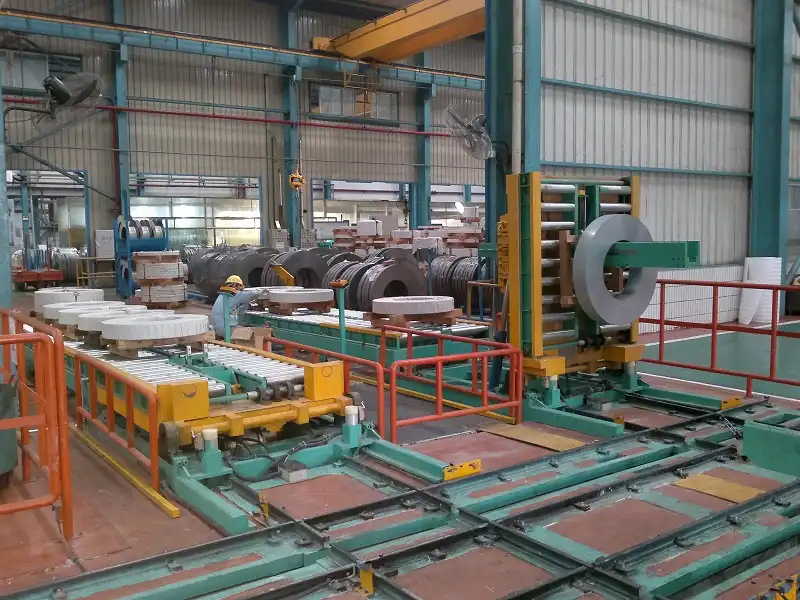
That answer might seem straightforward, but the real work is in the details. How do you actually measure these things? How do you separate a great engineering partner from a smooth-talking salesperson? It can feel like a complex puzzle, especially from thousands of miles away. But it doesn't have to be. Let's break down the process step-by-step. I'll guide you through the critical questions you need to ask and the key areas you must investigate. This will help you make a confident decision and ensure your investment drives your business forward.
What Does a 'Best Deal' on a Coil Packing Line Really Mean?
Many procurement managers are trained to focus on one thing: getting the lowest price. They send out requests for quotations and the supplier with the most attractive number often gets the business. But this approach is a huge gamble when it comes to heavy industrial machinery. A low price tag can hide a mountain of future problems, like frequent breakdowns, high maintenance needs, and slow performance that creates a bottleneck in your entire operation. The initial savings you celebrated are quickly eaten up by production losses and repair costs. A true "best deal" is not the cheapest machine you can find. It is the machine that provides the best return on your investment by solving your core problems. It enhances worker safety, boosts your production output, and protects your coils from damage, delivering value year after year.
The "best deal" on a coil packing line represents the optimal balance of machine reliability, operational efficiency, worker safety, and long-term supplier support. It is an investment that lowers your operational costs, minimizes product damage, and provides a clear, positive return on investment over the machine's entire lifecycle, not just on the day of purchase.
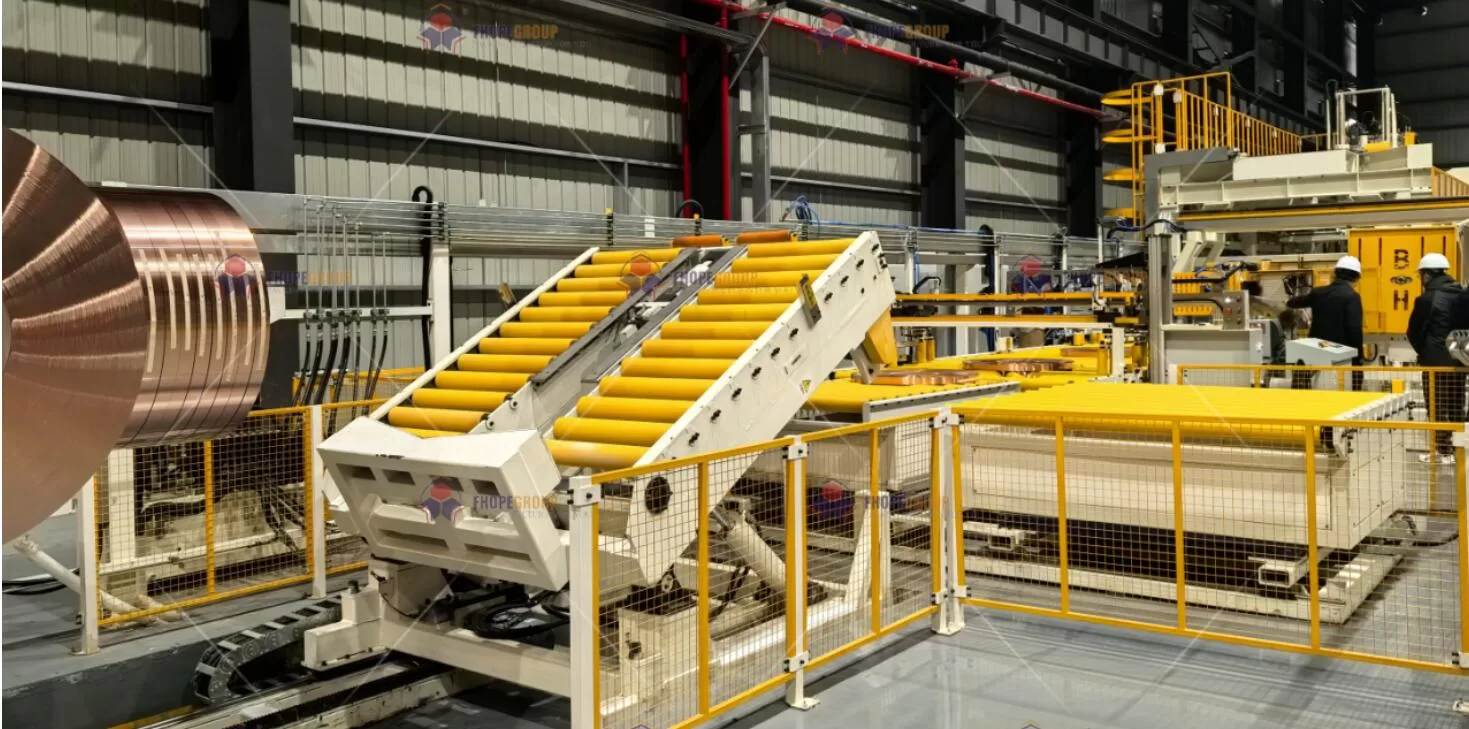
Shifting Focus from Price to Total Value
I remember talking to a factory manager, someone a lot like Michael Chen. He was under immense pressure to cut costs. He chose a supplier from another region who offered a price that was 20% lower than everyone else's. He felt he had secured a huge win for his company. But six months after installation, the story changed. The wrapping ring on the machine failed constantly. The conveyor rollers were not strong enough for his heavy coils, causing alignment issues. His team spent more time fixing the machine than running it. The "deal" ended up costing him double in downtime and lost orders.
This story is incredibly common. The initial price is only one part of the equation. To understand the real cost, you must think about the Total Cost of Ownership (TCO). This includes the purchase price, but also the costs of running the machine, maintaining it, and the costs incurred when it isn't running. A reliable machine that runs for ten years with minimal issues is a far better deal than a cheap machine that becomes a headache after one year.
The Four Pillars of a True 'Best Deal'
When you evaluate a coil packing line, you need to look at it from a holistic perspective. I always advise my clients to focus on four key pillars that define the machine's true value. A great deal delivers on all four of these, not just one.
| Pillar | What to Look For | Why It Matters for Your ROI |
|---|---|---|
| Reliability | High-quality components from known brands (e.g., Siemens PLC, SKF bearings), a robust steel frame, and a proven, simple design. | Every hour of downtime is lost revenue. Reliability directly reduces maintenance costs and prevents production bottlenecks, ensuring a smooth workflow and on-time deliveries. |
| Efficiency | The machine's cycle time, the level of automation that reduces manual steps, and how easy it is for your team to operate and change wrapping materials. | Higher efficiency means more coils packed per shift with the same number of staff. This directly lowers your cost per unit and increases your factory's overall capacity. |
| Safety | Fully enclosed safety guarding, accessible emergency stop buttons, and an ergonomic design that minimizes manual lifting or awkward movements for operators. | A safe machine protects your most valuable asset: your people. It reduces the risk of costly injuries, lowers insurance premiums, and improves employee morale and retention. |
| Support | Responsive technical support, clear documentation, availability of critical spare parts, and comprehensive on-site training for your operators and maintenance crew. | A machine is only as good as the support behind it. Strong support ensures that if a problem does occur, it's resolved quickly, minimizing downtime and keeping your line running. |
Thinking in these terms changes the conversation. You stop asking "How cheap can I get it?" and start asking "How much value will this machine bring to my operation?" That's the question that leads to a truly great deal.
How Can You Verify a Supplier's Technical Expertise and Not Just Their Sales Pitch?
Every supplier's website is filled with impressive claims. Every salesperson will tell you their machine is the best, the most reliable, and the most efficient. Their brochures are glossy and their presentations are polished. But how do you know who is a genuine engineering expert and who is just repeating a sales script? I've seen factory managers get charmed by a great presentation, only to discover later that the supplier couldn't solve a simple technical problem or customize the machine for their specific needs. Trusting the wrong person leads to a machine that doesn't fit your workflow, or worse, a supplier who has no answers when you need help the most. You have to become an investigator. You need to push past the marketing claims and demand concrete proof of their expertise.
To verify a supplier's technical expertise, you must go beyond their marketing materials. Request detailed case studies with verifiable performance data from past projects. Insist on speaking directly with their current clients, especially those in a similar industry to yours. Most importantly, schedule a technical deep-dive call with their engineers, not just their sales team. A true expert will eagerly discuss your specific operational challenges and propose customized, practical solutions.
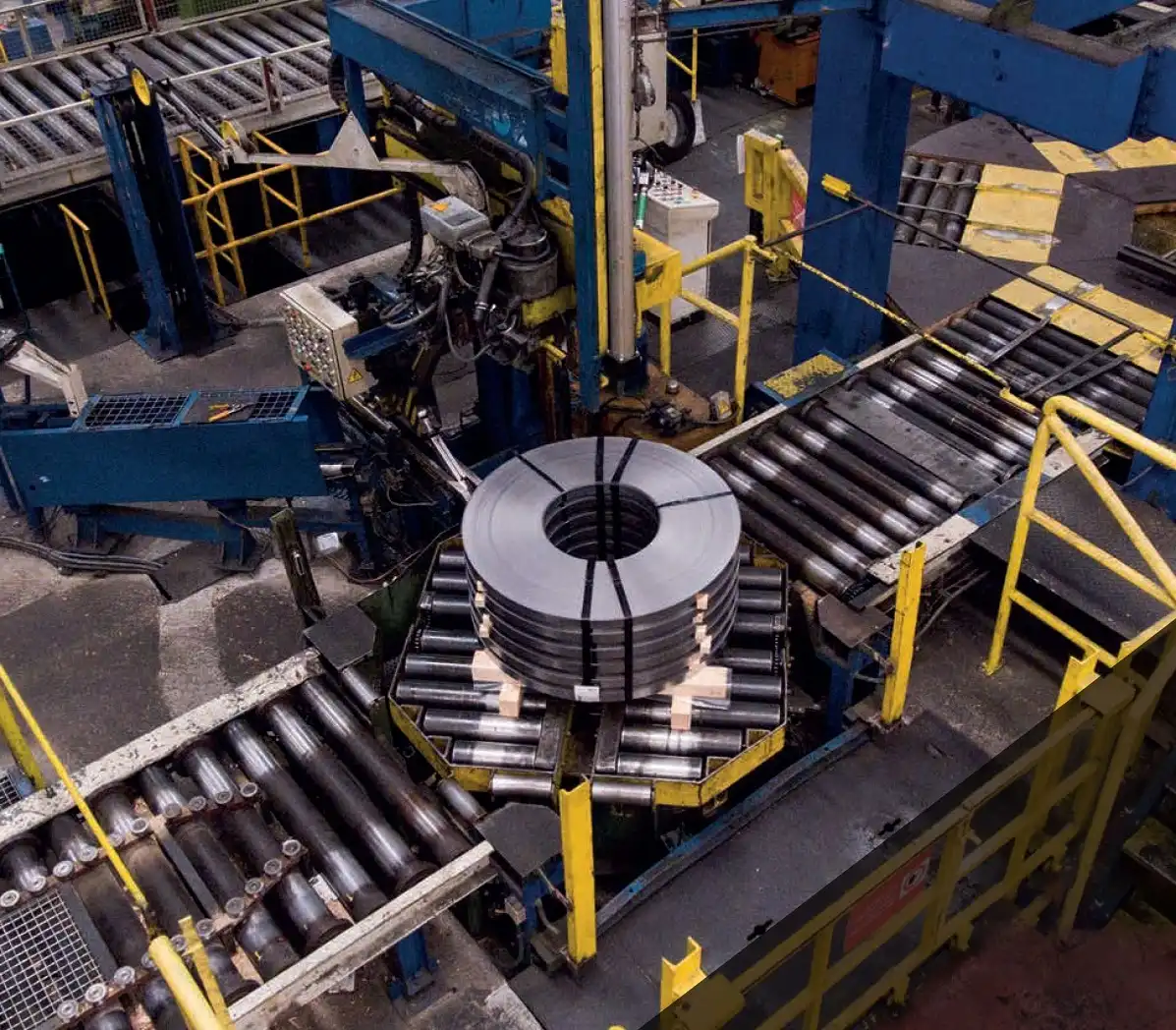
The Technical Deep Dive with Engineers
This is the single most important step you can take. A salesperson is trained to sell you a standard product. An engineer is trained to solve a problem. You must insist on speaking with the engineers who will be designing and building your machine. This is where I built my company, SHJLPACK. We are a knowledge-sharing platform first and a machine builder second. I want my clients to talk to my engineers because that’s where the real value is created.
When you get on that call, come prepared. Don't ask generic questions like "Is your machine good?" Ask specific, operational questions related to your factory's reality. For example: "We handle slit coils that are only 50mm wide. How does your conveyor system ensure they stay stable during transport and wrapping?" or "Our factory floor has limited space here. Can you modify the layout of the infeed and outfeed conveyors to fit this footprint?" A true expert will welcome these questions. They will start sketching solutions and discussing trade-offs. A salesperson will likely say, "I'll have to check and get back to you."
Your Verification Checklist
Treat this process like a formal audit. Use a checklist to ensure you are comparing suppliers fairly and gathering the evidence you need. Here is a simple framework you can use.
| Verification Method | Key Questions to Ask | Red Flags to Watch For |
|---|---|---|
| Case Studies | Can you provide a case study for a client in the steel industry with coils similar to our weight and size? What was their measured increase in throughput? | Vague success stories with no specific numbers. Case studies from completely unrelated industries. Refusal to share any performance data. |
| Reference Calls | May I speak to the plant manager at Company X? What was the installation and training process like? When you've had a technical issue, how quickly did their team respond? | Hesitation or refusal to provide references. Providing only a single, "perfect" reference. The reference contact is a salesperson, not an operator or manager. |
| Factory Audit | Can we do a live video tour of your workshop? Show me a machine you are currently building. What quality control checks do you perform on your welds and electrical panels? | A disorganized or empty workshop. An unwillingness to show you their production process. No clear quality control procedures or testing stations. |
| Technical Discussion | We use VCI paper. How does your machine handle the automatic cutting and feeding of this material? What is the estimated wrapping material consumption per coil of our size? | Generic answers that don't address your specific material or coil size. The inability to discuss detailed technical specifications or offer customizations. |
A supplier who is confident in their technical ability will be transparent. They will proudly show you their work, connect you with happy clients, and make their engineers available to you. A supplier who is hiding something will make excuses. This process will quickly show you who you can trust to be your partner.
What Hidden Costs Should You Watch Out for When Buying from India?
You've received a quotation for a new coil packing line from a supplier in India. The price on the paper looks fantastic, well within your budget. It seems like the perfect deal. But often, that initial price is just the tip of the iceberg. I have seen many companies get excited by a low Ex-Works (EXW) price, only to be hit with a series of unexpected bills that were never discussed. The costs of shipping, customs, installation, and even essential spare parts can quickly add up, turning your great deal into a budget disaster. To truly understand the cost of your investment, you must demand full transparency from your supplier and get a clear picture of all the expenses required to get that machine running on your factory floor.
When purchasing a coil packing line from India, procurement teams must be vigilant about hidden costs. These often arise from international shipping and insurance, unexpected customs duties and taxes, unquoted travel and living expenses for installation engineers, inadequate training, and the high price of a necessary two-year spare parts package. To avoid these surprises, you must insist on a detailed, itemized quotation that covers the total cost of delivery, installation, and commissioning, not just the machine's base price.
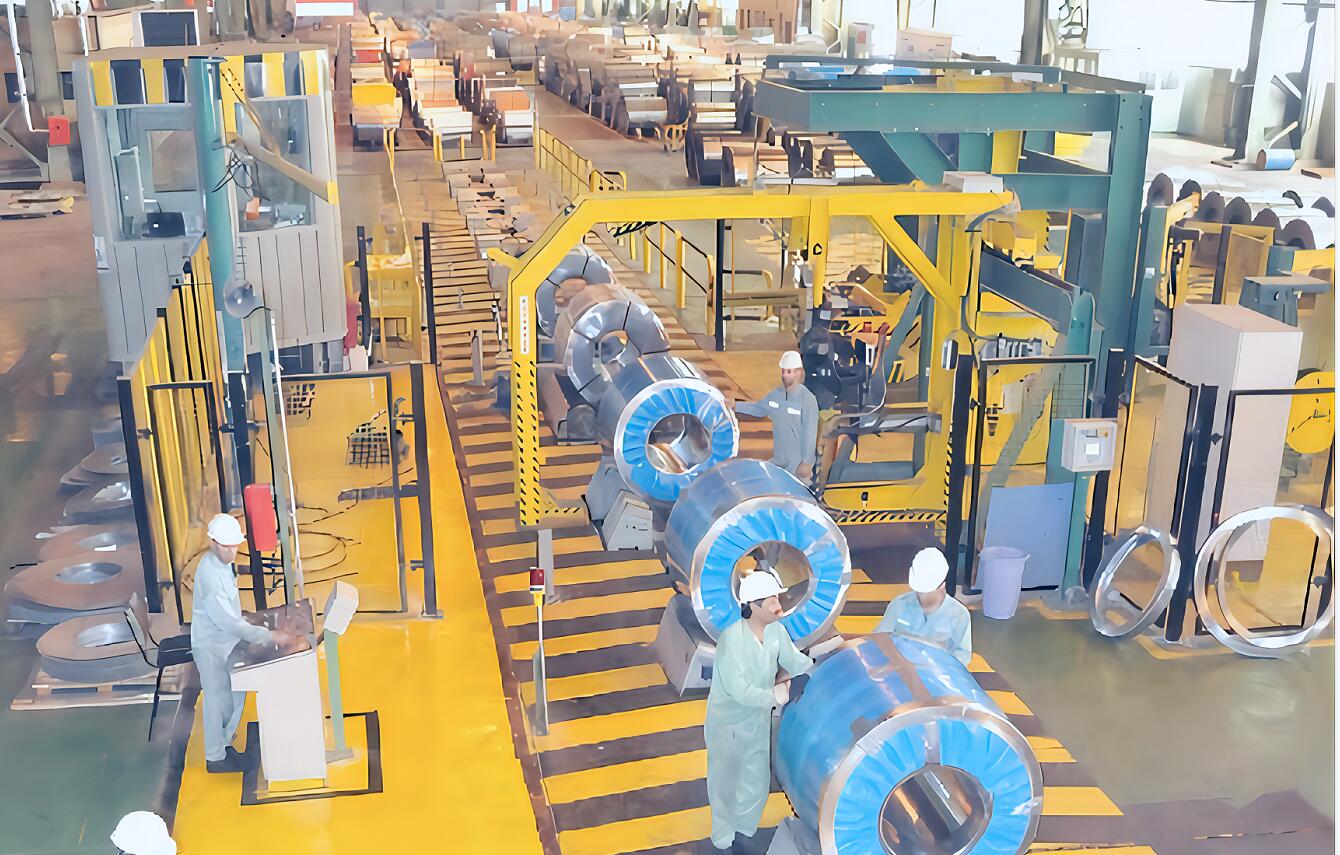
Deconstructing the Quotation: Beyond the Base Price
First, you need to understand the shipping terms, known as Incoterms. A low price is often an "Ex-Works" or EXW price. This means the price only covers the machine itself, sitting at the supplier's factory door. You are responsible for everything else: arranging the truck to the port, the ocean freight, the insurance, the customs clearance, and the final delivery to your factory. A much clearer term is "Cost, Insurance, and Freight" (CIF) to your nearest port, or even better, "Delivered Duty Paid" (DDP) to your factory. DDP means the supplier handles everything. Even with CIF, you need to be clear about what is and isn't included. Does the insurance cover the entire journey to your factory, or just to the destination port? Any ambiguity here can lead to big costs and bigger headaches.
I always advise my clients to create a spreadsheet to compare offers. Don't just compare the single price at the bottom of the quote. Create line items for every potential cost and force the suppliers to fill in the blanks. This brings transparency to the process.
Common Hidden Cost Categories
Here are the most common areas where unexpected costs appear. You need to ask direct questions about each of these categories before you sign any contract.
| Cost Category | Key Questions to Clarify with the Supplier | The Potential Financial Impact if Unchecked |
|---|---|---|
| Shipping & Logistics | Does your quote include shipping to my nearest port (CIF)? Or to my factory (DDP)? Is full transit insurance included until the machine is at my facility? Who is responsible for unloading at my site? | Ocean freight and insurance can add 10-15% or more to the machine's cost. If the machine is damaged in transit and not properly insured, you could face devastating losses and delays. |
| Installation & Commissioning | Are the costs for your engineers' flights, visas, local transportation, accommodation, and meals included in the price? For how many days of installation support is this valid? | These expenses can easily add thousands of dollars to your project cost. If commissioning takes longer than expected, you need to know what the daily rate for the engineer is. |
| On-Site Training | Is on-site operator and maintenance training included? How many days of training are provided? Is the training documentation provided in our local language (e.g., Spanish for Mexico)? | Inadequate training is a huge hidden cost. It leads to improper machine use, lower efficiency, potential for damage, and safety risks. Retraining later is expensive. |
| Spare Parts & Consumables | Please provide a priced list of critical spare parts recommended for the first two years of operation. What is the lead time to get these parts shipped to us in an emergency? | A supplier might sell a cheap machine but charge very high prices for essential spare parts. A machine sitting idle waiting for a $500 part can cost you tens of thousands in lost production. |
A trustworthy partner will be happy to answer these questions and provide a clear, detailed quotation. They want to build a long-term relationship based on trust, not make a quick profit on hidden fees. If a supplier avoids these questions or gives vague answers, you should see that as a major red flag.
What's My Personal Advice for Partnering with an Indian Supplier?
You have done all the research. You have compared the technical specifications, you have a good idea of the total costs, and you have narrowed down your list of potential suppliers. But you still feel a bit hesitant. This is a major investment, and the success of your project and your factory's performance depends on making the right choice. The fear of making a mistake is completely normal. As someone who has stood exactly where you are, and who has also built a factory from the ground up, let me share my most important piece of advice. This isn't a secret formula or a clever negotiation tactic. It's about a fundamental shift in mindset: you are not just buying a machine, you are choosing a partner.
My personal advice is to treat your supplier selection as the beginning of a long-term partnership, not a one-time transaction. Seek out a company whose leadership has deep, hands-on engineering experience. These are the partners who will genuinely understand your daily operational challenges, who communicate with transparency, and who are personally invested in your success because they have walked in your shoes.
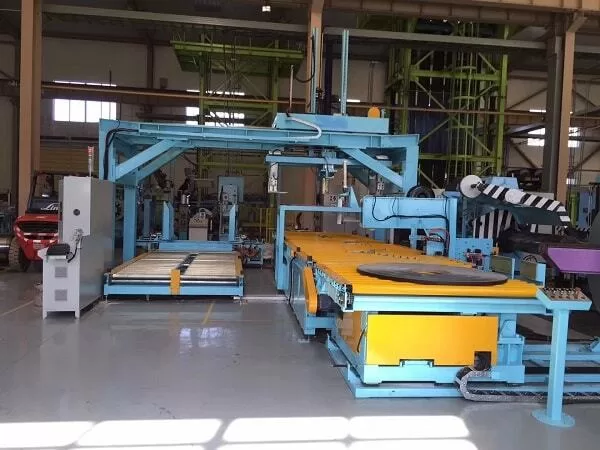
Look for an Engineer-Led Company
This is the most critical factor for me. I started my career as a packing machine engineer on a factory floor. I saw firsthand the frustration that managers and operators felt when a machine didn't work as promised. I saw the safety risks from poorly designed equipment and the production losses from constant downtime. When I founded my own factory and later SHJLPACK, I built it on a foundation of engineering excellence. My mission is not just to sell machines, but to share knowledge and solve real-world problems for people in the industry.
When you partner with a company led by engineers, the entire conversation changes. They are less focused on sales quotas and more focused on finding the right solution. They understand the importance of reliability over unnecessary features. They can talk to you about the tensile strength of the steel they use in their frames or the specific reason they chose one brand of motor over another. This is the kind of partner a manager like Michael Chen needs—someone who speaks his language and understands the pressures he faces. A business led by a salesperson sells you what they have. A business led by an engineer builds you what you need.
Communication and Transparency are Everything
When your partner is on the other side of the world, communication is the glue that holds the project together. You need a partner who is committed to clear, consistent, and transparent communication. This goes beyond just having someone who can speak English. It means they are willing to have regular video calls to show you progress. It means they send you photos and videos of your machine being built and tested in their workshop.
This transparency builds trust. It removes the fear and uncertainty that comes with sending a large amount of money overseas. It makes you feel like you are part of the process, not just a customer waiting for a shipping notification. When I work with clients, I want them to see everything. I want them to meet the engineers and the technicians building their machine. This way, when the machine arrives at their factory, they already feel a sense of ownership and confidence. A supplier who is reluctant to communicate openly is often a supplier with something to hide.
I was able to achieve my own financial independence because of the opportunities this industry gave me. I helped many of my clients grow their businesses by providing them with reliable solutions that solved their problems. Now, my goal with SHJLPACK is to give back, to help others succeed in the same way. The best "deal" is a partnership that helps you achieve your goals—higher efficiency, better safety, and sustainable growth. Don't just chase the lowest price. Find a partner who is invested in your success. That is the most valuable deal you can ever make.
Conclusion
Finding the best deal in India means finding the right partner. Focus on total value, verify expertise, demand transparency, and build a relationship for long-term success.





